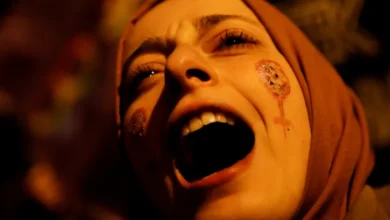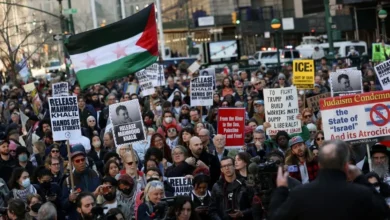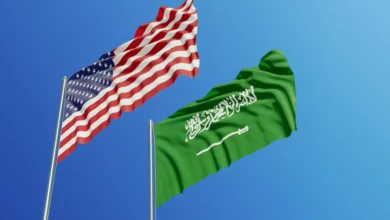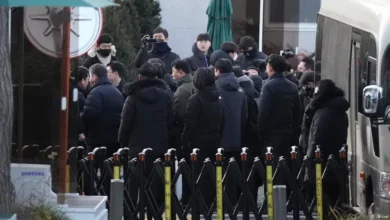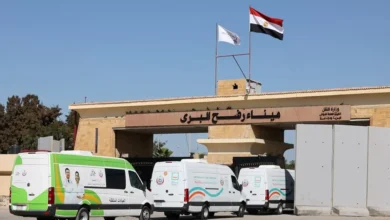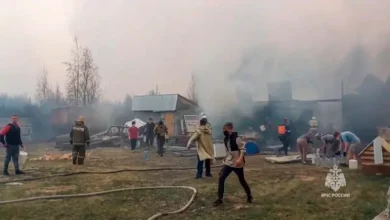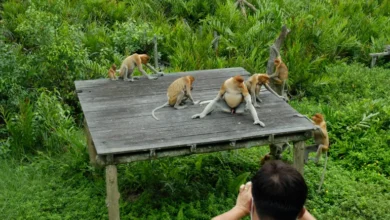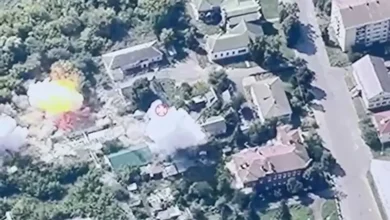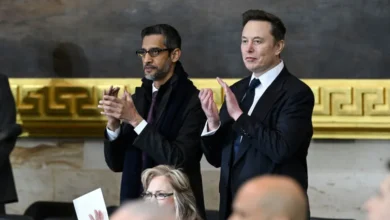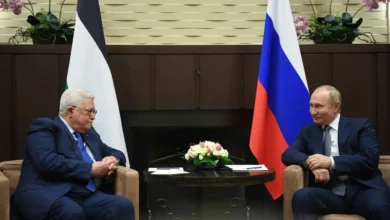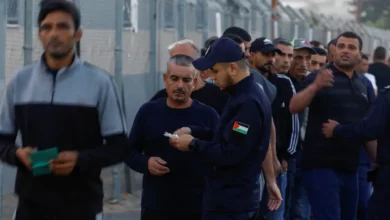Khamenei says Iran’s allies ‘will not back down’ in war with Israel
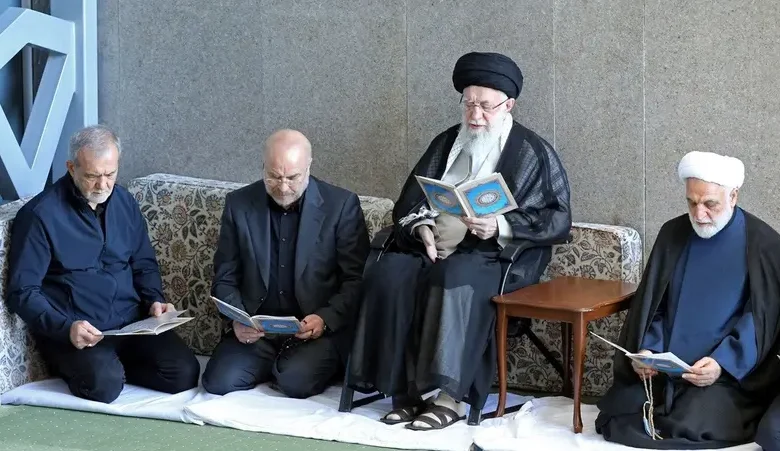
Iran’s supreme leader vowed in a rare address on Friday that his allies around the region would keep fighting Israel, as he defended his country’s missile strike on his country’s arch-foe.
Ali Khamenei’s address in Tehran was the first since Iran launched its second ever attack on Israel, and also the first since exchanges of fire pitting Hezbollah fighters against Israeli troops escalated into full-blown war in Lebanon.
Nearly a year after Palestinian militant group Hamas launched the deadliest attack on Israel in its history on October 7, Israel announced it was shifting its focus to securing its border with Lebanon.
Israel says its objective is to allow 60,000 Israelis displaced by a year of cross-border rocket attacks launched by Hezbollah to return to their homes.
Israel’s attacks on Hezbollah strongholds around Lebanon have killed more than 1,000 people since September 23, according to the Lebanese health ministry, and forced hundreds of thousands more to flee their homes in a country already mired in economic crisis.
They have also killed a host of Hezbollah commanders, an Iranian general and, in their biggest blow to the group in decades, assassinated its leader, Hassan Nasrallah.
Speaking to a crowd of thousands in Farsi-speaking Iran, he said in Arabic: “The resistance in the region will not back down with these martyrdoms, and will win.”
The address comes as Israel weighs retaliation for Hezbollah backer Iran’s missile attack which Tehran said was revenge for the killing of Nasrallah and other top figures.
The escalation has left people in Lebanon fearful that there will be no swift end to the violence engulfing their country.
In Beirut, 35-year-old displaced nurse Fatima Salah said people were “scared for our children, and this war is going to be long.”
Israeli Defense Minister Yoav Gallant warned that “those who attack the state of Israel, pay a heavy price.”
Iran said it would step up its response if Israel counterattacked.
Israel intercepted most of the 200 missiles launched by Iran, though the attack has sparked fear in Israel of more violence to come. In the West Bank, a Palestinian was killed by shrapnel.
Rony Eli-Ya, 37, an Israeli on a pilgrimage to Ukraine’s Uman, said it was “a miracle, not a single rocket killed a single Jew” in the attack.
With fears of further violence drawing in more countries in the region, US President Biden said that “we can avoid” all-out war in the Middle East, but that “there is a lot to do yet, a lot to do yet.”
He also that the United States was “discussing” possible Israeli strikes on Iranian oil facilities.
Border crossing closed
Lebanon said an Israeli strike on Friday cut off the main international road to Syria, after Israel said Hezbollah was transporting weapons through the tiny Mediterranean country’s principal land border crossing.
The strike, which Israel has not commented on, comes after 310,000 people, mostly Syrians, have in recent days fled the war pitting Israel and Hezbollah in Lebanon for relative safety in neighboring Syria.
Israel’s Arabic-language spokesman Avichay Adraee accused Hezbollah of using the main international border crossing out of Lebanon into Syria to transport weapons.
Coastal Lebanon shares a border with Israel, with which Hezbollah is at war, and Syria.
Hezbollah has historically relied on Syria, with which it is allied, to transport arms and other equipment from Iran.
Masnaa, as it is known, is the main overland crossing out of the country, and the strike could leave thousands who are unable to fly out trapped.
Iranian Foreign Minister Abbas Araghchi meanwhile landed in Beirut for talks with Lebanese officials, Lebanon’s official National News Agency reported.
He arrived after an intense night of bombardment of Hezbollah’s main bastion in the southern suburbs, with a US and an Israeli news website saying Israel targeted the militant group’s potential successor just a week after it killed its Nasrallah.
The strikes destroyed at least five buildings and left a huge crater in the road, an AFP photographer said.
A target of one of Israel’s recent Beirut strikes was Hashem Safieddine, a potential successor to Hezbollah chief Nasrallah, US news site Axios said, citing three Israeli officials it did not identify.
Israeli news website Ynet also reported Safieddine had been the target, while the Israeli military told AFP it was looking into the reports.
In Lebanon, a source close to Hezbollah said Nasrallah had been given a temporary burial in a secret location until a public funeral could be held.
Israel announced this week that its troops had started ground raids into parts of southern Lebanon, a stronghold of Hezbollah, after days of heavy bombardment of areas across the country where the group holds sway.
Hezbollah said it shelled Israeli troops in a border area of south Lebanon Friday, in the latest such clash on the frontier.
The militant group also said it kept up its rocket fire, with sirens warning of incoming fire blaring in northern Israel Friday.
Lebanon’s health ministry said Friday that 37 people were killed and 151 wounded by Israeli strikes over the previous 24 hours.
The Israeli military said nine of its soldiers have been killed in combat in Lebanon.
